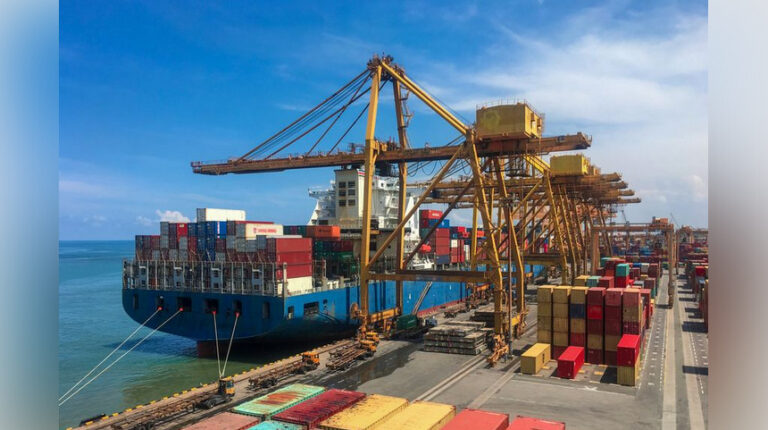By Bonface Orucho, bird story agency
The Port of Banana project, a deepwater project in the Democratic Republic of Congo (DRC), has gained fresh momentum with the addition of a new investor, sparking renewed optimism for the port’s long-awaited completion.
The British International Investment has committed up to US$35 million alongside DP World for the strategic project expected to become a key driver of trade and economic growth in the country and region.
According to Chris Shijiutomi, the managing director and head of Africa for BII, “the Port of Banana will play a major role in supporting the economic aspirations of millions living in the DRC.”
The DRC is Africa’s second-largest country and the fourth most populous, with more than 100 million people. With a coastline of only 37 km, the majority of the DRC is landlocked, forcing most of its international trade to pass through neighboring countries such as Angola and the Republic of Congo-Brazzaville.
While DRC currently has two ports, the ports of Matadi and Boma, they are shallow water ports limited by the depth of the Congo River where they are situated. The port of Matadi for instance, has a draft of around 8.2 m and is around 93 miles upstream from the mouth of the Congo.
The new port is located at Banana Creek, an inlet about 1 km wide on the north bank of the Congo River’s mouth, in the Bas-Congo province.
Recognising the significance of a deepwater seaport, the government issued a 30-year concession to DP World to develop the port of Banana, the first deep-sea port in the country.
With a draft of 17.5 m, the Port of Banana is expected to receive large container vessels from around the globe and will become a single gateway for imports and exports of containers in the DRC.
A review of the earlier contractual agreement was done in 2021 with a renewed focus on the project targeting a 600-meter quay and an annual capacity of 450,000 teu. The first stone was laid at a ceremony in 2022, with construction works scheduled to finish in 2025.
The port is being developed in phases, with its capacity set to expand incrementally over time, integrating with a wider infrastructure network, including a free zone and multimodal logistics linking the country’s major urban hubs like Kinshasa, home to nearly 17 million people, via the cities of Boma and Matadi.
The economic relevance of the new port cannot be understated. According to BII’s press statement about the project, it will facilitate the DRC’s access to global markets, unlocking the country’s international trading potential.
An evaluation commissioned by BII shows trade efficiencies that will be created from the completion of this project will cut the cost of international trade in the DRC by 12%.
Also, according to Seatrade Maritime News, the project will enable “the creation of approximately 85,000 jobs, US$1.12bn in additional trade and US$429m in increased economic outlook — equivalent to a 0.65% increase in the DRC’s GDP.”
Other assessments show the project holds far greater impact potential. For instance, according to Container News, the BII-DP World partnership will “improve access to vital goods for 35 million people, support 5 million jobs, and generate an additional US$51 billion in trade by 2035.”
The 578-kilometer Banana-Matadi-Kinshasa trade corridor, which serves approximately 54 million people, is poised to see substantial economic benefits from the new port development.
Since 2021, DP World, along with other investors such as BII, have been undertaking rapid expansion and modernization programs across a range of African ports. The two, for instance, have a history of modernization and expansion of ports in Dakar (Senegal), Sokhna (Egypt) and Berbera (Somaliland). DP World last year announced it was investing US$10 billion in African ports.
From Indian operator Adani’s recent debut of operations at the Dar es Salaam Port to DP World’s growing operations in Angola, Djibouti and Egypt, the global investment appeal in African ports is undoubtedly in vogue in recent years.
This week, Noatum Maritime, a Spanish multinational, has announced it is acquiring a controlling stake in the Egyptian maritime agency Safina to expand its presence in Egypt’s maritime market and the entire Middle East region. This reaffirms the global investors’ interest in African ports.
Investment in this sector will continue to surge in 2024, according to a report by logistics firm Agility. The report, which surveyed close to 1000 logistics industry executives worldwide, revealed that over 47% of respondents plan to increase their investments in Africa, while another 14% are eyeing first-time investments in the continent.



